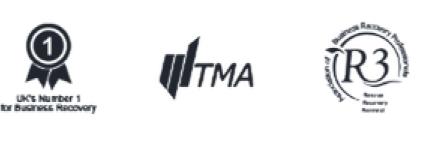How to close down a solvent company and start again
If the company can repay all its debts, plus interest, within 12 months, and has more than £25,000 of retained profits, Members’ Voluntary Liquidation (MVL) is likely to be the most appropriate method of closure.
It’s a tax-efficient option for the right businesses as distributions are subject to Capital Gains Tax (CGT) and not income tax. Additionally, you can reduce the rate of CGT to 10% if you’re eligible for Business Asset Disposal Relief.
Alternatively, voluntary dissolution may be an option but you must be sure that the business is solvent before proceeding on this route. With voluntary dissolution, you follow certain steps to wind down your business affairs and must notify all creditors of your intentions to close.
Can I close a business with debts and start again?
You can close down your business and start again, even if it has outstanding debts. The recommended route, in this case, is Creditors’ Voluntary Liquidation (CVL), as it prioritises your creditors and protects them from additional financial loss.
Compulsory liquidation, which involves a creditor or group of creditors winding up the company, can leave you at risk of misconduct allegations and could result in more limited opportunities to start again with another company.
This is because compulsory liquidation triggers a comprehensive Insolvency Service investigation to determine the reasons behind the company’s failure. It can lead to disqualification if any questionable transactions or conduct emerges, and the potential to be held personally liable for the business’s debts is also present.
Informing HM Revenue & Customs (HMRC)
With multiple offices across the UK and a vastly experienced team of business closure experts, you are never far away from the advice you need. Our Licensed insolvency practitioners provide free consultations to all directors and shareholders, and can quickly ascertain which closure method is best for your business.
We are licensed by recognised professional bodies and have helped thousands of directors over many years. Contact us today for your free company closure consultation.
Possible issues when starting a new company?
Reusing the company name
Strict rules are in place concerning the use of the same or a similar name as the liquidated company. If the company was forcibly liquidated you cannot use the same name or a similar name again.
Personal guarantees and overdrawn directors’ loan accounts
If you’ve provided a personal guarantee for the old company’s borrowing, or your directors’ loan account was overdrawn, you’ll have to repay the outstanding amounts as they’re assets of the insolvent company.
HMRC security deposit
If the insolvent business carried tax debts and they believe they’re at risk of further losses, HMRC may demand a security deposit before they allow the new company to conduct trade.
Company Closure can provide more professional advice on the best way to close down your limited company and explain any potential roadblocks to starting again with a new business. Please get in touch to arrange a free consultation – we operate offices across the country.
Related Posts
25,000+ Company Directors Supported – Partner Led Service
At Company Closure we have a nationwide team of licensed insolvency practitioners and company closure experts here to help you understand your options. Whether your company is solvent or insolvent, there is a closure method out there to suit you.
Call our team of licensed insolvency practitioners today:




